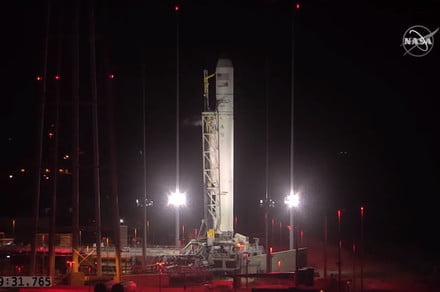Space Station’s New Toilet Remains Stuck on the Launchpad

The crew on board the International Space Station is looking forward to the delivery of a new, more comfortable and efficient toilet. But it will have to wait a little longer.
Northrop Grumman's Antares rocket launch from Virginia Space's Mid-Atlantic Regional Spaceport was canceled on Thursday evening, October 1, just 2 minutes and 20 seconds before launch.
The abandonment came after air traffic controllers "received non-nominal data from ground equipment," Northrop Grumman said in a tweet.
We now hope to be able to launch the rocket on Friday evening as long as the problem that caused the postponement tonight can be resolved.
When it rises from the ground, Northrop Grumman's Cygnus starship will bring four tons of supplies and science experiments to the space station, including the vital toilet.
The so-called Universal Waste Management System (UWMS) was developed in response to feedback from astronauts on comfort and ease of use.
"It's also 65% smaller and 40% lighter than the space station's current toilet," said NASA, adding that improved integration with other parts of the ISS water system will help recycle more urine, according to the astronauts drinking filtering and processing.
"We recycle about 90% of all water-based liquids on the space station, including urine and sweat," said NASA astronaut Jessica Meir. “On board the space station, we're trying to mimic elements of the earth's natural water cycle in order to reclaim water from the air. And when it comes to our urine on the ISS, today's coffee is tomorrow's coffee! "
Fortunately, the three astronauts currently on board the space station do not have to cross their legs while waiting for the new toilet to arrive, as the existing plumbing on board the ISS is still fully functional.
For more information about the next attempt to start, please visit Northrop Grumman's Twitter or Facebook account. There you will find the latest news.
In the past few days, three rocket launches were canceled within seconds. On Wednesday, ULA paused the countdown just seven seconds after launch, while a SpaceX mission to deploy the latest Starlink satellites on Thursday paused the countdown 18 seconds after launch. In both cases, the sudden occurrence of technical problems was cited as the cause.
Editor's recommendations

